Explore the Best AI Image Gallery
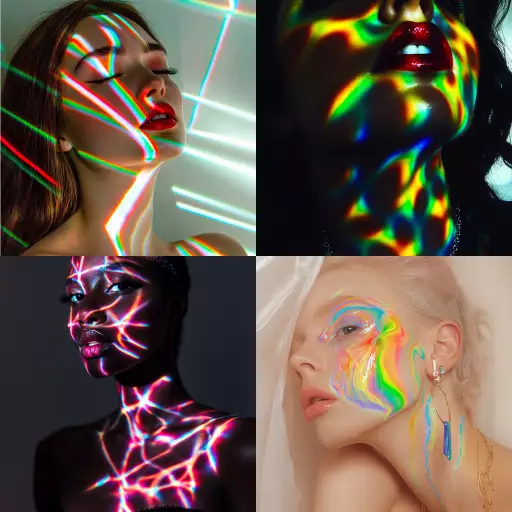
Beyond Pixels: Exploring the Ethical Frontiers of AI-Generated Media
The digital world is abuzz with the emergence of AI-powered tools capable of generating stunning visuals, composing captivating music, and even penning compelling narratives. This new frontier of AI-generated media holds immense potential to revolutionize the creative landscape, but it also raises a multitude of ethical questions that demand careful consideration.
From altering the very definition of authorship to the risk of perpetuating biases embedded within training data, the implications of AI in media creation are far-reaching. This blog post aims to shed light on these complexities, exploring both the exciting possibilities and the potential pitfalls of this rapidly evolving technology.
Transforming the Creative Industry
AI-generated media is already making waves across various creative sectors:
- Visual Arts: AI algorithms can generate unique artwork, ranging from abstract compositions to hyperrealistic portraits. This opens up new avenues for artistic expression and allows creators to explore unconventional aesthetics.
- Music Composition: AI-powered tools can compose original music in diverse genres, assisting musicians in overcoming creative blocks or generating background scores for films and video games.
- Content Creation: AI can assist in writing articles, scripts, and even social media posts, potentially streamlining content production workflows.
These are just a few examples of how AI is transforming the creative industry. The potential applications seem limitless, empowering individuals and organizations to push the boundaries of imagination and innovation.
Ethical Considerations: A Minefield to Navigate
While the possibilities are exciting, the ethical implications of AI-generated media require careful examination:
- Authorship and Ownership: When an AI creates a work of art, who owns the copyright? Is it the developer of the AI, the user who provides the input, or the AI itself? This raises complex legal and philosophical questions about the nature of creativity and intellectual property.
- Bias and Fairness: AI algorithms are trained on massive datasets, which can inadvertently contain societal biases. This means that AI-generated media could perpetuate existing stereotypes or discriminate against certain groups, amplifying harmful representations.
- Misinformation and Manipulation: The ability to generate highly realistic images and videos raises concerns about the potential for misuse in spreading misinformation or creating deepfakes, which can have damaging consequences for individuals and society.
- Transparency and Accountability: It is crucial to understand how AI algorithms work and to ensure that their decision-making processes are transparent and accountable. This will help build trust and address concerns about the potential for bias or manipulation.
Addressing these ethical challenges will require a multi-faceted approach involving collaboration between technologists, ethicists, policymakers, and the creative community.
Shaping the Future: Responsible Innovation in AI Media
The future of AI-generated media is still being written. It holds the promise of unlocking new creative frontiers, but it also presents significant ethical challenges that must be addressed responsibly.
Here are some key considerations for shaping a more ethical and sustainable future for this technology:
- Promote Transparency and Explainability: Develop AI algorithms that are transparent and whose decision-making processes can be understood by humans. This will help build trust and accountability.
- **Address Bias in Training Data:** Actively work to identify and mitigate bias in the datasets used to train AI models. This requires diverse representation and ongoing monitoring for fairness.
- **Establish Ethical Guidelines and Regulations:** Create clear ethical guidelines and regulations for the development and use of AI-generated media, addressing issues such as authorship, copyright, and the potential for misuse.
- **Foster Collaboration and Dialogue:** Encourage open dialogue and collaboration between technologists, artists, ethicists, policymakers, and the general public to ensure that the development and deployment of AI-generated media reflects societal values.
By embracing these principles, we can harness the power of AI to enhance creativity while mitigating its potential risks. The future of AI-generated media depends on our collective commitment to responsible innovation and ethical stewardship.
Conclusion
AI-generated media is a rapidly evolving field with both immense promise and profound ethical implications. As we navigate this new terrain, it is crucial to engage in thoughtful discussions, establish clear guidelines, and prioritize ethical considerations. By doing so, we can harness the transformative power of AI while ensuring that its benefits are shared by all.

](https://images.ai-img.art/thumbnails/150/cc8f7b8338e849e1e11a902ac51eda96c8f710e5d829c5b4d57b56fa05d28e95.webp)


](https://images.ai-img.art/thumbnails/150/c04f7210bb9d35279503ff64ad44a9826d6909838f777fb1edd0fdece2ac7c70.webp)
](https://images.ai-img.art/thumbnails/150/4d725f4d5380eb583bdebf0aad4c789acd6782398b4050f01f350a939dd4c2af.webp)

](https://images.ai-img.art/thumbnails/150/78a1311461ccc4b60dd1430d56ee04b3b5612a3145aef0a32196168d5489fdf3.webp)

](https://images.ai-img.art/thumbnails/150/89d86a1c20e8844b6d4ce23cf0e6ae10c19923617b6be16cac5d3cc513bf9c4e.webp)

](https://images.ai-img.art/thumbnails/150/55e9c8ac48f7ca1311ec4a843e2616aa87c73e2217901ac138d198afb0b4f1db.webp)
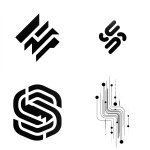



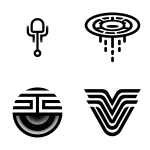
](https://images.ai-img.art/thumbnails/150/f1cbba604c7411267acd95acaa4746a5ee006a25ade5e596a9501884b384e1dd.webp)





](https://images.ai-img.art/thumbnails/150/bbf691f1c69e4801062c68d0435463c5bf76258e3984fbe3cc25e9e46174cf88.webp)



](https://images.ai-img.art/thumbnails/150/16ec42833d204af37c75cc776a794c54661cbfe1061c899680a4976a7f74cd51.webp)





](https://images.ai-img.art/thumbnails/150/45d068cbdc39002eccc21e2169438a3c142426219fda8c9e027c536cdf66811e.webp)


](https://images.ai-img.art/thumbnails/150/9ad2f4d771346182f4c9b6d1712edfd0b6b776f37b75dac606a8e03b1bd2dc47.webp)

](https://images.ai-img.art/thumbnails/150/5b3fca49762c8c532ff70f250ca3b5900bac75be98d6c82f8f7a220465ad534a.webp)


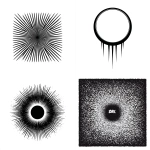
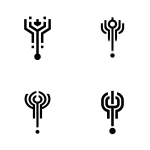

](https://images.ai-img.art/thumbnails/150/8884a7a8953b23d6c882f33524c10e09d320bbce4f305f2c7e79c402d82c1760.webp)
](https://images.ai-img.art/thumbnails/150/f9928aee79da6b2028ac7a7129ac30e6475a85d5300661776fde267c2da839ab.webp)


](https://images.ai-img.art/thumbnails/150/03de477e462377e62b34fea23ab1cbf6d4557f4077cc8bed9f23388af1200721.webp)
